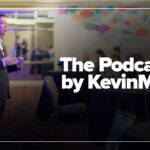In January, I wrote regarding the biased NBC report on unidentified bodies from a coroner’s office being used by a medical school. Subsequently, the network aired two related episodes.
The second report centered on a self-employed purveyor of bodies and parts. He displayed no respect for the people whose bodies or parts he sold. The report was disturbing, as there is an ethical difference between an individual profiting from these sales and a medical school using them to further education and research.
As an undergraduate, I worked as a diener (morgue assistant) for the county coroner and in the pathology department of a teaching hospital. I transported bodies, cleaned and washed them, and prepared them for dissection. Occasionally, I assisted with autopsies through reflecting skin and muscle layers, sample collection, and organ removal, and I asked many questions. These were exceptional learning opportunities, and I took as much advantage of them as possible and gained far more knowledge than the average pre-med student.
Before I touched my first body, I learned to respect the person; to address the body as Mr. or Ms., and their last name, to maintain the cadaver’s modesty, to speak appropriately, and to avoid humor in the body’s presence. Given this background, I was repelled by the private purveyor’s callous and uncaring attitude toward those he trafficked, and I could not accept his claim that he provided a needed service.
The third installment addressed the alleged lack of effort by the original coroner’s office (CO) to locate families. Two examples were provided, although both lacked sufficient context to judge fault. The first could have been a simple oversight. The second one was questionable as to whether the fault was with the CO or with the decedent’s brother, who, given his statements, provided minimal attention to his disabled sibling when he was alive, and whose contact information was not available in the brother’s home or wallet in case of emergencies.
This report, like the first, left many questions unanswered. In neither installment was anyone from the CO interviewed. Did NBC offer them this opportunity? No indication was provided regarding whether the coroner issued a statement or declined to respond to NBC or the CO’s policy regarding finding families. What budget was allocated for this activity? Was it sufficient to allow a staff member to be dedicated to seeking families, or was this person overwhelmed with other responsibilities that limited the time available for this task? How did the office compare in this activity to those in comparable-sized and funded cities? All of these questions remained unanswered. As presented, the CO was judged deficient based on scant evidence and denied an opportunity to provide an explanation or defense.
Journalism’s code of ethics does not support one-sided reporting for the sake of sensationalism only. These reports were reminiscent of the yellow journalism of the early 20th century when major newspapers competed for readers by printing the most outrageous stories possible. This return to the past is recurring as the legacy media (TV, radio, print) compete with online news for public attention.
NBC’s three episodes did not alter my belief that the use of bodies for which families cannot be found for medical purposes can be ethical and of increasing value as the number of donated bodies is decreasing and purchasing them is becoming increasingly costly. Medical students require working with dead humans, not only simulacra, as this helps them to understand that they will be treating humans and not artificial creations in the future.
Continuing this activity presumes that a CO either has a sufficient budget and technology for a staff member to devote adequate time to the search, or it lacks one or both, or even the availability of refrigerated storage space, and keep these cadavers if they are unable to easily identify families. It is unacceptable when finances, technology, and staff are present but insufficient effort is made.
Additionally, as was indicated in the initial segment, the individual whose body was the topic of that report had deliberately divorced himself from his family and purposely did not provide them a forwarding address, and did not have any family contact information in his wallet. If they had found his family, would the CO not, though unknowingly, have violated his rational choice? There was no way, however, for the CO to know he did not want to be found.
If we are to entertain the bioethicist’s assertion in that installment that he did not provide consent for the scientific use of his body before his death as a credible possibility, we must also consider the equally plausible likelihood that he did not wish for his family to be involved with his funeral and burial, as neither claim can be verified nor disproven.
If we assume both possibilities as equally valid and we do not want to violate either ethical possibility, the only options are burial or cremation, without any attempt at family notification or scientific donation for every corpse for which family cannot quickly and easily be found. This would leave families in limbo, never knowing if their relative is alive or deceased, or hinder the potential acquisition of knowledge. I would find both unethical, as either would be a social loss.
M. Bennet Broner is a medical ethicist.





















![AI censorship threatens the lifeline of caregiver support [PODCAST]](https://kevinmd.com/wp-content/uploads/Design-2-190x100.jpg)
